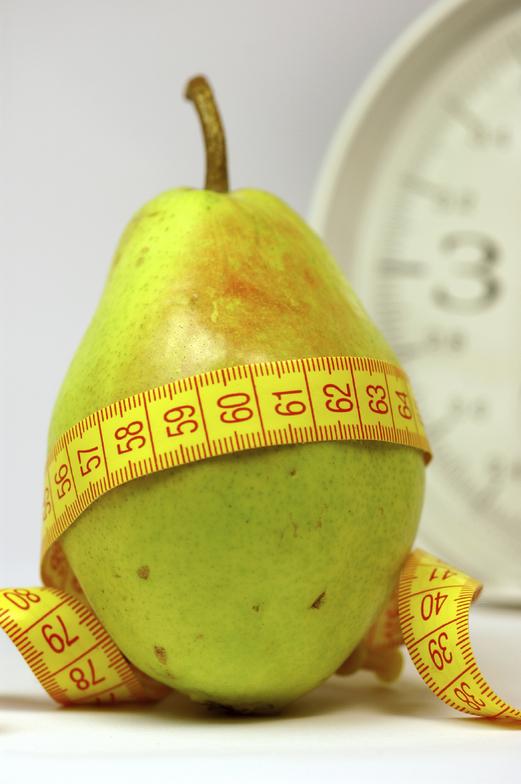Eat Your Way to Better Health
How to Fight Obesity With Good Health
The First 7 Steps to Achieving Health and Happiness at Any Weight
Losing weight is desirable, but it doesn't guarantee health. Improving health without first losing weight is not only possible, it's the best way to change a life.
High blood pressure, diabetes, heart disease, certain cancers, worn-out joints and a compromised immune system are all concerns associated with obesity. But if being thin automatically resolved these issues, hospitals would not be filled with sick thin people.
Society’s Obese Mindset
Obesity is a complex issue that rarely has to do with laziness, lack of discipline or sheer gluttony. But the negative mindset against obesity works against solving the problem. Often shamed, the obese person is left with little to enjoy in life other than the private celebration of food.
Discrimination against obesity is accepted in society. Fat jokes draw laughter. Jobs are withheld. Medical care is inadequate. People are ridiculed. To reverse obesity, the obese person must first find a way to withstand the detrimental emotional onslaught.
Think Away the Obese Label
The most effective way to reset the challenging connotation of obesity is to ignore it. Stop worrying about size and be concerned with health. In spite of what the scales reflect, it is absolutely possible to be healthier tomorrow than you are today. Focusing on health instead of weight works with the body to correct imbalances and works with the mind to defeat negativity. Obsessing over weight triggers yo-yo dieting, a sense of deprivation and repeated cycles of failure. Getting thin is not an automatic segue to improved health.
Join the Health Revolution
Take your first step toward a healthy body that weighs what it is intended to weigh by following these seven simple guidelines.
1. Knowledge is power. Read, study and learn. Devour every resource on how the body works and what role food, spices, supplements, additives and preservatives play in either enhancing the system or causing it harm.
Knowledge is power. Read, study and learn. Devour every resource on how the body works and what role food, spices, supplements, additives and preservatives play in either enhancing the system or causing it harm.
2. Become attuned to your body. How does consuming a certain
Become attuned to your body. How does consuming a certain
food make you feel? Keep a food journal. It need not be specific to portion
size. It need only record every food you eat. Keeping a food journal along
with a tandem symptoms journal is like having a daily CT scan of your health.
3. Get regular blood work that not only includes standard tests like
Get regular blood work that not only includes standard tests like
glucose, sodium, potassium, etc., but also includes extended thyroid panels,
lipid panels, C-reactive Protein, Homocysteine, Vitamin D 25 Hydroxy and
Leptin Hormone. Vitamin D deficiency seriously undermines overall health,
and leptin resistance can cause the brain’s "stop eating" signal to fail, and
indicate risk of cardiovascular disease.
4. Practice temporary elimination. Eliminate one food for three weeks then reintroduce it. Be acutely aware of what happens when that food returns. Identify your personal food enemies then create a list of body-specific power foods that energize you.
Practice temporary elimination. Eliminate one food for three weeks then reintroduce it. Be acutely aware of what happens when that food returns. Identify your personal food enemies then create a list of body-specific power foods that energize you.
5. Add, don’t subtract. Make a promise to eat health-boosting foods first. Consume ten daily servings of fruits and vegetables, plus nuts and seeds, nourishing juices, yogurt and fish. Adding these and other power foods to whatever else you choose to eat sets the stage for change. One day you’ll find that you’re so full of what you’ve promised to eat that there will be little desire for foods you shouldn’t eat.
Add, don’t subtract. Make a promise to eat health-boosting foods first. Consume ten daily servings of fruits and vegetables, plus nuts and seeds, nourishing juices, yogurt and fish. Adding these and other power foods to whatever else you choose to eat sets the stage for change. One day you’ll find that you’re so full of what you’ve promised to eat that there will be little desire for foods you shouldn’t eat.
6. Move. Exercise—whatever style and intensity you can handle—makes every cell in your body healthier.
Move. Exercise—whatever style and intensity you can handle—makes every cell in your body healthier.
7. Shed the shame. There’s no more reason to hang your head over a battle with obesity than there would be if you were battling any other affliction. Enjoy life.
Shed the shame. There’s no more reason to hang your head over a battle with obesity than there would be if you were battling any other affliction. Enjoy life.
Improved health, not weight loss at any cost, is the true quest. Fight obesity with the kind of good health that often leads to natural weight loss. Choosing health allows the weight to correct itself in its own way, in its own time.
Power Foods Matter
The copyright of the article How to Fight Obesity With Good Health is owned by its author, Tricia Spencer.
Permission to republish any part of the article in print or online must be granted by the author in writing.
NOTE: Health information on this site is intended to broaden the discussions about health awareness and is offered for informational purposes only. It is not medical advice.
Timeless
Life and Living
with Tricia Spencer










